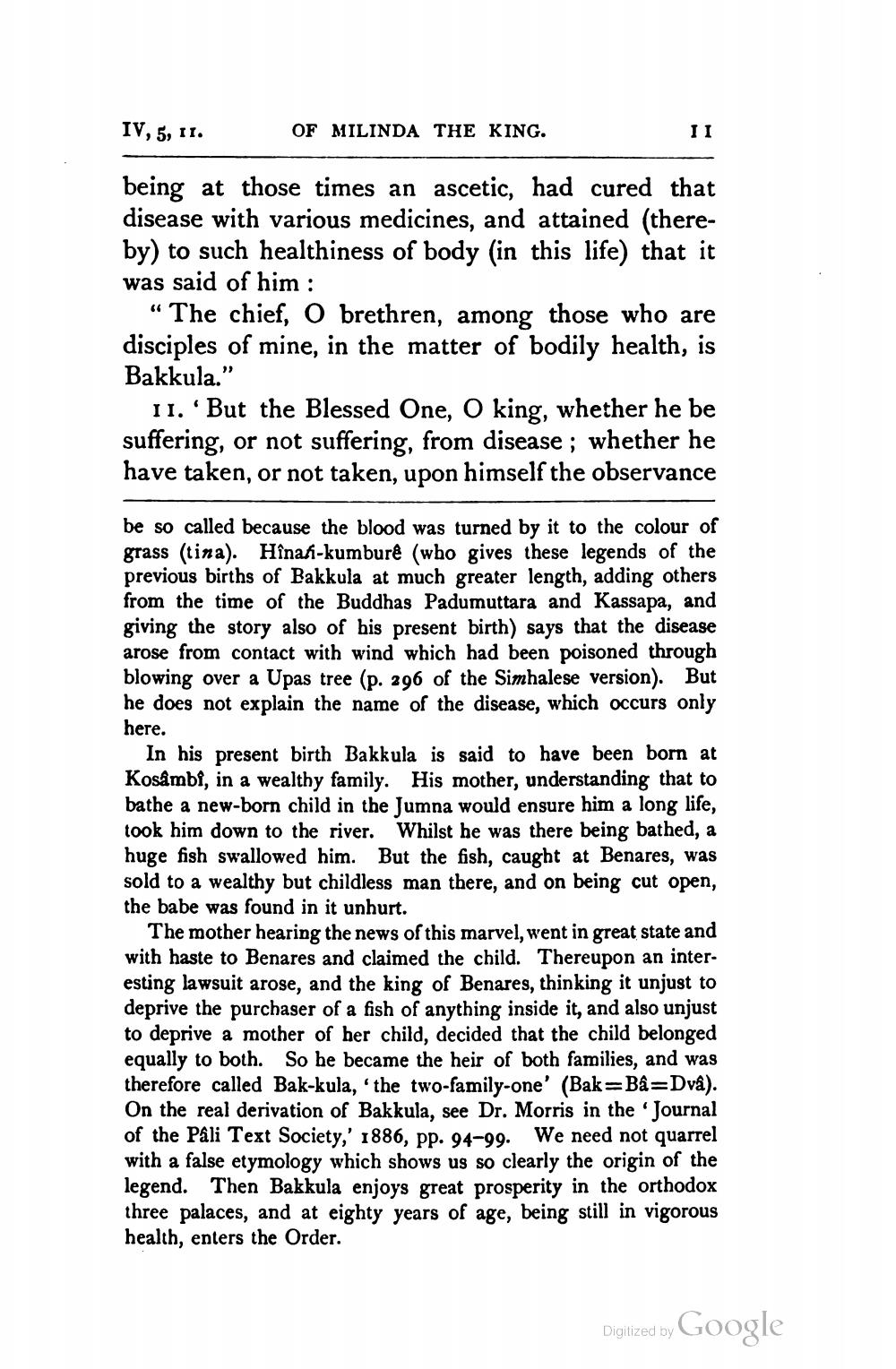________________
IV, 5, 11.
OF MILINDA THE KING.
II
being at those times an ascetic, had cured that disease with various medicines, and attained (thereby) to such healthiness of body (in this life) that it was said of him :
“The chief, O brethren, among those who are disciples of mine, in the matter of bodily health, is Bakkula."
11. 'But the Blessed One, O king, whether he be suffering, or not suffering, from disease ; whether he have taken, or not taken, upon himself the observance
be so called because the blood was turned by it to the colour of grass (tina). Hînafi-kumburê (who gives these legends of the previous births of Bakkula at much greater length, adding others from the time of the Buddhas Padumuttara and Kassapa, and giving the story also of his present birth) says that the disease arose from contact with wind which had been poisoned through blowing over a Upas tree (p. 296 of the Simhalese version). But he does not explain the name of the disease, which occurs only here.
In his present birth Bakkula is said to have been born at Kosâmbi, in a wealthy family. His mother, understanding that to bathe a new-born child in the Jumna would ensure him a long life, took him down to the river. Whilst he was there being bathed, a huge fish swallowed him. But the fish, caught at Benares, was sold to a wealthy but childless man there, and on being cut open, the babe was found in it unhurt.
The mother hearing the news of this marvel, went in great state and with haste to Benares and claimed the child. Thereupon an interesting lawsuit arose, and the king of Benares, thinking it unjust to deprive the purchaser of a fish of anything inside it, and also unjust to deprive a mother of her child, decided that the child belonged equally to both. So he became the heir of both families, and was therefore called Bak-kula, the two-family-one' (Bak=Bâ=Dvå). On the real derivation of Bakkula, see Dr. Morris in the Journal of the Pali Text Society,' 1886, pp. 94-99. We need not quarrel with a false etymology which shows us so clearly the origin of the legend. Then Bakkula enjoys great prosperity in the orthodox three palaces, and at eighty years of age, being still in vigorous health, enters the Order.
Digitized by Google




